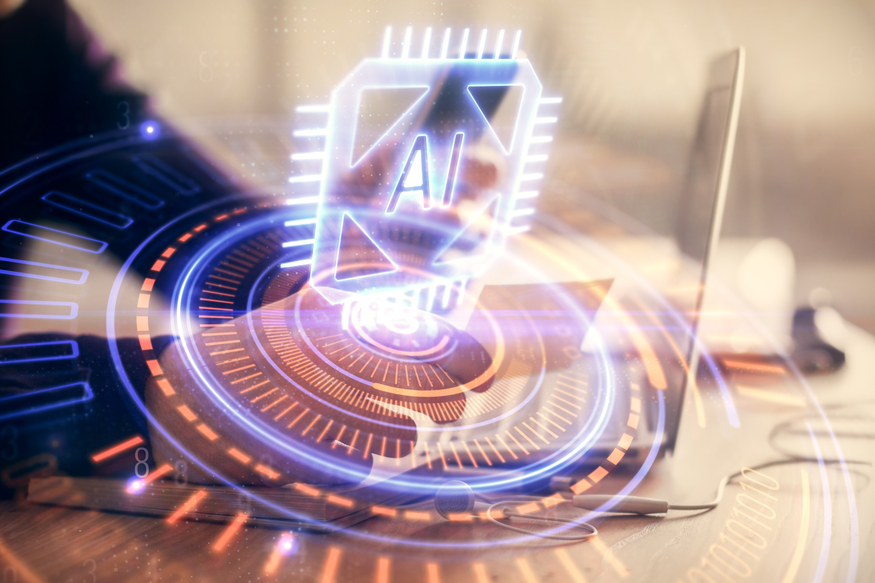ChatGPT and similar consumer-facing technologies are on everyone’s radars right now. But while there’s a lot of excitement in the general public, workers are wondering what’s next and how the rise of AI will affect tech jobs. We gathered opinions from far and wide, and they vary greatly. But we did spot some overarching themes that are important to understand for workers in tech or who are pursuing tech jobs. How will the rise of AI affect them?
The Bird’s-Eye View
McKinsey Global Institute’s Anu Madgavkar estimates that one in four workers in the US is going to see more AI and technology adopted in their jobs and that 50-60% of companies say they are pursuing AI-related projects. “So one way or the other, people are going to have to learn to work with AI,” Madgavkar says.
“AI will wipe out a lot of current jobs, as has happened with all past technologies,” Lawrence Katz, a labor economist at Harvard, adds. “But I have no reason to think that AI and robots won’t continue changing the mix of jobs. The question is: will the change in the mix of jobs exacerbate existing inequalities? Will AI raise productivity so much that even as it displaces a lot of jobs, it creates new ones and raises living standards?”
“Analyzing and interpreting vast amounts of language-based data and information is a skill that you’d expect generative AI technologies to ramp up on,” Madgavkar continues. One could assume that this will displace many jobs, but the other way to look at it is that it could enhance the capabilities of those professionals instead.
For instance, “at law firms, AI might eliminate some attorneys’ jobs by being able to prepare first drafts of business contracts. But AI might also enable paralegals to oversee the preparation of draft contracts, and that increased responsibility could mean higher pay for paralegals,” The Guardian writes.
As Built In points out, both specially trained workers and blue-collar workers alike will be impacted by the continued implementation of AI. Automation, in general, has phased out an estimated 1.7 million manufacturing jobs, for example. But, on the flip side, AI is predicted to create 97 million new jobs by 2025.
These new jobs that the rise of AI is expected to create include tech jobs, of course. But the US Bureau of Labor Statistics (BLS) also predicts that AI will create more jobs for accountants, forensic scientists, geological technicians, technical writers, MRI operators, dietitians, financial specialists, loan officers, medical secretaries, and customer service representatives, too.
“These fields will not experience job growth in spite of AI, but through it,” says Gigaom CEO Byron Reese. “But…the real gains in jobs will come from places where our imaginations cannot yet take us.”
What About Tech Jobs, Specifically?
For those in tech, the rise of AI isn’t new, but no one can dispute the recent acceleration. There’s a lot of talk about AI reducing job roles, but for most tech workers, that’s not a concern. However, if you hope your job won’t be CHANGING anytime soon, you may need to think again.
Interesting Engineering compiled a list of six tech jobs that are expected to be most in demand in 2023. Many of these roles are more in demand because of the rise of AI: machine learning engineers, data scientists, cloud engineers, information security analysts, and full-stack developers among them. The BLS reports that the employment of software developers, quality assurance analysts, and testers will grow 25 percent between 2021 and 2031.
On the flip side, certain tech jobs are quickly dying off. CIO outlines six “dead-end IT skills” here. If you’re in one of these positions, you’ve already noticed a shift. Think:
- Tech jobs that are tied to physical hardware and legacy systems. The sudden, resounding shift to cloud-based services during the pandemic means that your certifications in networking, operating systems, and virtualization environments aren’t nearly as valuable as before. Skills tied to physical data center opps are also at risk.
- “One trick” programming language skills. The need to understand multiple languages will increase in the next few years, Ivan Panchenko, co-founder and deputy CEO at Postgres Professional, tells CIO. “In the past, a tech pro could use one technology for a decade — it’s no longer the case. Innovations come at a faster pace. Senior software developers often switch to 100% new technology stacks in just months,” he adds.
- Dated QA skills. Manual testing needs are disappearing as more organizations adopt automation. “At the moment, the IT skills nearing the end of their life cycle include manual test and SQL,” says Tony Lysak, CEO of the Software Institute. “These are being progressively replaced by UX/UI, cross-functional team members with automated test skills and cloud-based engineers often with specialist skills in big data.”
One thing most experts agree on: The tech workers who are the safest against the rise of AI are those who can adapt to change and have marketable soft skills.
Chris Nicholson, CEO of the San Francisco-based machine learning company Skymind.AI has some candid advice on both fronts. First, “avoid bullshit jobs. If you’re bored in your job, it’s probably a bullshit job, and the machines will probably eat it.” (Fair enough.) Second, capitalize on your soft skills. As Microsoft Bing’s ChatGPT experiment proves, good interpersonal skills are still lacking in AI. Nicholson says that solid verbal and written communication, like listening, reading emotions, asking questions, writing clearly and structuring cogent arguments devoid of ambiguity continue to be valuable.
If you’re concerned about how the rise of AI will affect you in the tech jobs landscape, it doesn’t hurt to connect with a tech recruiter to discuss what they’re seeing and how you match up.




